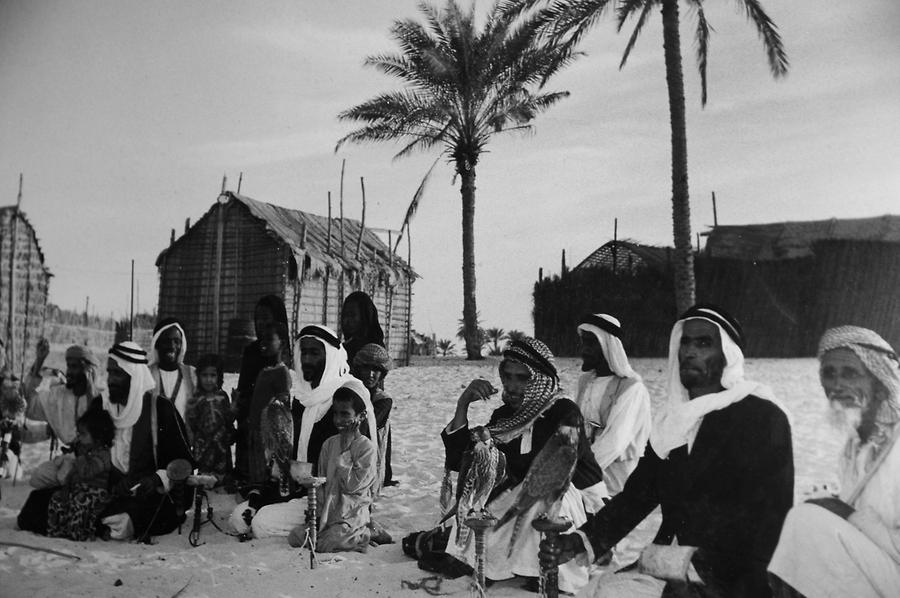Ancient Dubai#

Ancient Dubai, January 2011, © Gerhard Huber, under CC BY-NC 4.0 +Edu
For the bedouins this was an unfamiliar role, because originally the "lords of the desert" assured their livelihood by the breeding camels, goats and sheep. Family clans provide the basis of their social system and their leaders, the sheikhs, can trace their pedigree in most cases even to the Prophet Mohammed. But the Sheikh was little more than a "primus inter pares", elected by a kind of council consisting of the patriarchs of the families belonging to the tribe. Nevertheless, the sheikh could expect unquestioning obedience from his subjects, because without this solidarity the individual would be at the mercy of the rigors of the desert and hardly capable of surviving. The possession of a clan, land, sometimes also the flocks, were considered communal property. For a long time nationalist ideas were strange to the Arab bedouins and gained in importance only in the course of the 20th century under the influence of European mindset.
Für Beduinen war dies eine ungewohnte Rolle, denn ursprünglich sicherten sich die „Herren der Wüste“ ihren Lebensunterhalt durch die Zucht von Kamelen, Ziegen und Schafen. Die Grundlage des Gesellschaftssystems bilden Familienclans, deren Oberhäupter, die Scheichs, ihren Stammbaum meist sogar bis auf den Propheten Mohammed zurückführen. Der Scheich war aber kaum mehr als ein „primus inter pares“, gewählt vom Versammlungsrat aus den Patriarchen der jeweils zum Stamm gehörenden Familien. Trotzdem konnte der Scheich von seinen Untertanen bedingungslosen Gehorsam erwarten, denn ohne diesen Zusammenhalt wäre der Einzelne den Unbilden der Wüste schutzlos ausgeliefert und kaum überlebensfähig. Das Eigentum eines Clans, Grund und Boden, manchmal auch die Herden, galten als Gemeinschaftsbesitz. Nationalistische Ideen waren den arabischen Beduinen lange Zeit fremd und gewannen erst im Laufe des 20. Jahrhunderts unter Einfluss europäischer Gedanken an Bedeutung.